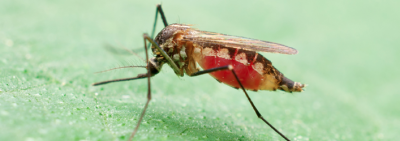West Nile Virus detected in Dartmouth mosquitoes
West Nile virus has been detected in mosquitoes collected from Dartmouth for the first time this year, the Massachusetts Department of Public Health reported Tuesday, Sept. 28.
The mosquitos carrying the virus were collected in the northeast section of Dartmouth. The location of the collection does not diminish the likelihood of the presence of mosquitos carrying the virus elsewhere in town since mosquito habitat is common throughout town, the Department of Public Health reported.
Despite the discovery of the disease in mosquitoes collected in Dartmouth, the town remains at low risk for West Nile Virus, according to Department of Public Health numbers as of Tuesday, Oct. 5. Other Bristol County communities are at moderate risk, including Dighton, Fall River, Rehoboth, Seekonk, Somerset and Swansea.
West Nile virus is most commonly transmitted to humans by the bite of an infected mosquito. The mosquitoes that carry this virus are common throughout the state and are found in urban as well as more rural areas.
While West Nile can infect people of all ages, people over the age of 50 are at higher risk for severe infection.
While West Nile Virus can sometimes be serious and even deadly, most people who contract it do not experience any symptoms at all. According to the CDC, about 1 in 5 people who get West Nile will experience a fever and other symptoms, while about 1 in 150 will experience severe or even fatal symptoms.
Mosquitoes are most prevalent from May to August, but remain active until the first time temperatures fall below freezing.
The Department of Public Health recommends the public take the following steps to protect themselves:
Avoid mosquito bites Apply insect repellent when you go outdoors. Use a repellent with DEET (N, N-diethyl-m-toluamide), permethrin, picaridin (KBR 3023), IR3535 or oil of lemon eucalyptus (p-methane 3, 8-diol PMD) according to the instructions on the product label.
DEET products should not be used on infants under two months of age and should be used in concentrations of 30% or less on older children. Oil of lemon eucalyptus should not be used on children under three years of age.
Permethrin products are intended for use on items such as clothing, shoes, bed nets and camping gear and should not be applied to skin.
Clothing can help reduce mosquito bites. Wearing long sleeves, long pants and socks when outdoors will help keep mosquitoes away from skin.
Be aware of peak mosquito hours. Dusk to dawn are peak biting times for many mosquitoes. When risk is increased, consider rescheduling outdoor activities that occur during evening or early morning. If you are outdoors at any time and notice mosquitoes around you, take steps to avoid being bitten by moving indoors, covering up and/or wearing repellant.
Several steps are recommended to reduce the presence of mosquitoes at home.
Drain standing water. Mosquitoes often lay their eggs in standing water. Limit the number of places around your home for mosquitoes to breed by either draining or getting rid of items that hold water.
Check rain gutters and drains. Empty any unused flowerpots and wading pools and change water in bird baths frequently.
Install or repair screens. Some mosquitoes like to come indoors. Keep them outside by having tightly fitting screens on all your windows and doors.
Fact sheets on ways to discourage mosquitoes and be protected from West Nile Virus and other mosquito-borne diseases are available at www.town.dartmouth.ma.us/board-health/pages/mosquito-information
Information about West Nile virus and reports of current and historical West Nile Virus activity in Massachusetts can be found at: www.mass.gov/dph/mosquito.















